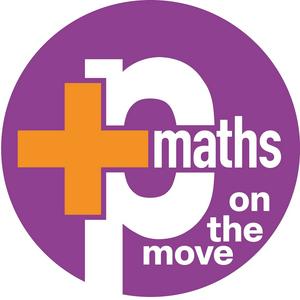You are blue, and are surrounded by other blue people: swirling together in a dot, identical and indistinguishable. From somewhere above you hear the ticking of a clock, and suddenly find yourself and some of your fellows pulled upwards, sucked through a tube arcing high above...
Intrigued? That is a description of one of Jess Enright's adventures in her mathematical models. This is an exciting new approach that researchers are using to invite people into the worlds of their models, both to communicate their research to the people outside of academia, but also for the researchers themselves to reflect on what aspects of reality these models actually do, and don't, describe.
These adventures in model land build on the work of Erica Thompson in her book, Escape from Model Land: how mathematical models can lead us astray and what we can do about it. Any mathematical description of a process in the world around us is a mathematical model: whether it's describing the processes in our climate, the spread of a disease through a population or the movement of water across a landscape. They are incredibly useful and key to research in modern mathematics and science. But these mathematical models are, by necessity, simplifications of the real world.
Erica's book inspired geoscientist Chris Skinner to use principles of role-playing games to explore and communicate mathematical models. And this approach was a perfect fit with Jess' experience building board games to communicate her research - we event get to play some in this podcast at the huge UK Games Expo in Birmingham earlier this year!
Jess Enright, along with Emma Gort Tarrus, in action at the UK Games Expo in Birmingham earlier in 2025. (Photo: Rachel Thomas)
In this podcast we talk to Jess (a reader in the school of Computing Science at the University of Glasgow and member of the JUNIPER partnership of disease modellers from across the UK), Chris (an independent geoscientist and researcher and a visiting fellow at York St John University)and Erica (Associate Professor of Modelling for Decision Making at University College, London) about their explorations of these ideas.
You can find out more information about the ideas discussed in the podcast here:
Maths in a Minute: Mathematical model – a brief and an accessible introduction to mathematical models and where they are used.
Escape from Model Land: how mathematical models can lead us astray and what we can do about it – Erica's book
Adventures in Model Land– the framework, developed by Chris, Erica and Jess, together with Liz Lewis, Rolf Hut and Sam Illingworth, for exploring mathematical models using table-top role-play games
You can find some of the adventures in model land and other games that Jess took to the UK Games Expo in Birmingham
This podcast is part of our collaboration with JUNIPER, the Joint UNIversity Pandemic and Epidemic Response modelling consortium. JUNIPER comprises academics from the universities of Cambridge, Warwick, Bristol, Exeter, Oxford, Manchester, and Lancaster, who are using a range of mathematical and statistical techniques to address pressing questions about the control of COVID-19. You can see more content produced with JUNIPER here.


